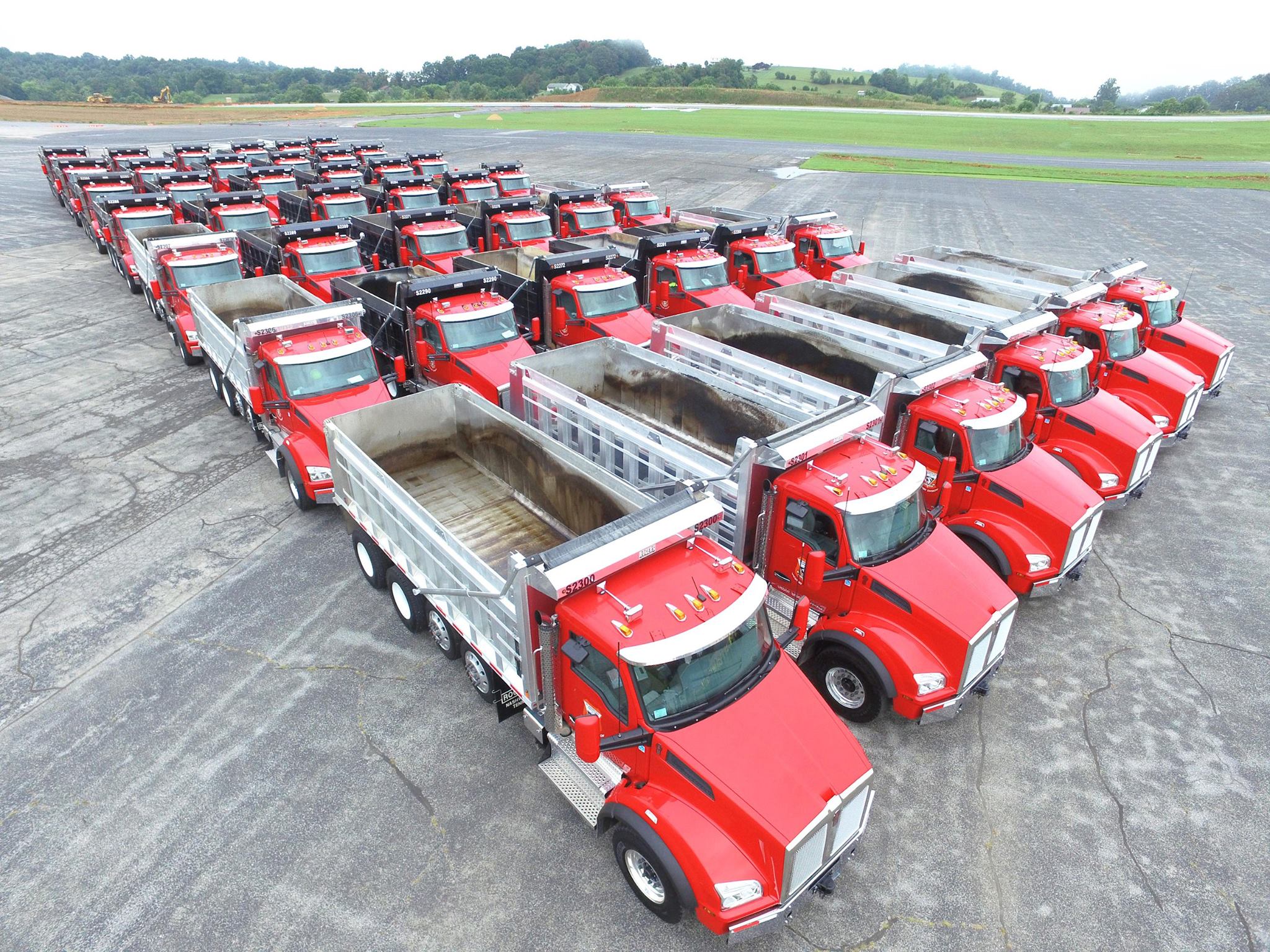
Going Green
We want our carbon footprint to be as small as possible.
A “carbon footprint” refers to the total amount of greenhouse gas emissions (generally CO2) that are caused by a given process, product or event.
Summers-Taylor is an industry leader in the use of “green” technologies and recycling practices that reduce our carbon footprint related to heavy and highway construction.
Our recycling of asphalt and shingles, integration of warm-mix asphalt production, and use of porous asphalt, called HydroFlo, also bring numerous opportunities for developers, architects, and engineers to achieve LEED (Leadership in Energy and Environmental Design) credits.
We continually strive to maximize our recycling while minimizing our fuel and waste consumption.
We Recycle Asphalt
Having invested in asphalt recycling technology more than 30 years ago, we were the first paving company in the Tri-Cities Tenn./Va. area to reclaim milled asphalt from projects, diverting it from dumping holes and landfills.
We began reprocessing reclaimed asphalt material, as well as leftover product from projects and remixed it appropriately with virgin asphalt. This not only minimizes our carbon footprint by conserving natural resources and reducing emissions and greenhouse gases, but it also cuts energy consumption. Asphalt recycling reduces costs, and the resulting surface performs as well or better than conventional pavements.
Even though asphalt is the most recycled product in the country – about 80 percent is reused in new roads, roadbeds, shoulders, and embankments – only three percent of all our nation’s roads are being recycled. More than ever before, Summers-Taylor supports this practice due to our nation’s aging road system, ever-increasing traffic volumes, and reduced government funding for road repairs.
We Offer Warm-Mix Asphalt
Once again, Summers-Taylor is an industry leader in Tennessee due to offering warm-mix asphalt (WMA) production – currently considered the “new green” in pavement construction. We are among a small group of companies in the state that applies the new technology.
Our warm-mix production involves a mechanical process of injecting water in vapor form into asphalt cement, creating a foam mixture. This process makes a workable asphalt mix at temperatures that are up to 100 degrees F lower than the 300+ degrees F normally required for traditional hot-mix production.
Due to the lower temperatures, 12 to 15 percent less fuel is consumed, the rate of production is faster, and environmental emissions are reduced significantly for the benefit of workers, bystanders, and the overall environment.
In addition, the new, “greener” paving process can be applied to any project and is believed to improve pavement density, which strengthens roads and prevents water seepage – a primary culprit for potholes.
Emission Reductions if Using Warm-Mix
- 20% to 40% – Carbon Dioxide (CO2)
- 20% to 35% – Sulfur Dioxide (SO2)
- 10% to 30% – Carbon Monoxide (CO)
- 70% – Nitrous Oxides (NOx)
We Recycle Oil
In the course of any given workday, Summers-Taylor has hundreds of trucks on the road. We apply the latest technology, such as GPS tracking, to reduce fuel consumption, and we enforce a strict vehicle maintenance policy for optimal highway efficiency.
But perhaps we are proudest of the fact that we recycle over 525,000 gallons of used motor oil annually from our vehicles to fuel burners used during materials production.

“Green Pavements” can bring up to nine LEED Credits.
Did you know there are “green aspects” to paving that can help you accumulate LEED credits? Although pavement construction credits can’t by themselves result in LEED certification, they can help optimize LEED credits accumulated on a project or push it to a higher accreditation level. Taken alone, the standard design for a new asphalt pavement can generate up to four LEED credits. Incorporating other green features offered by Summers-Taylor – such as high levels of recycled asphalt, integration of recycled roofing shingles, and the use of warm-mix asphalt or porous asphalt – can result in as many as nine LEED credits.
